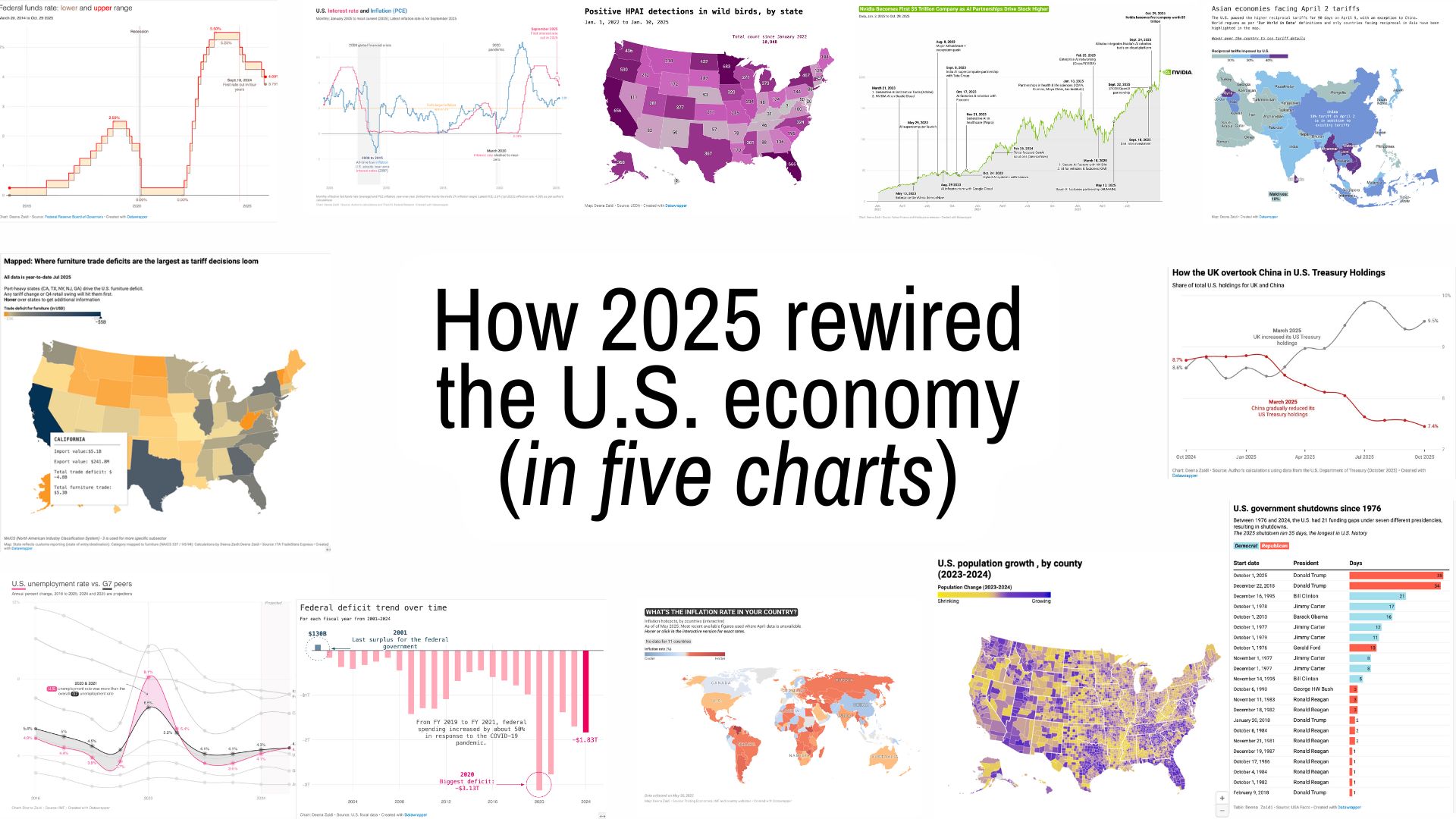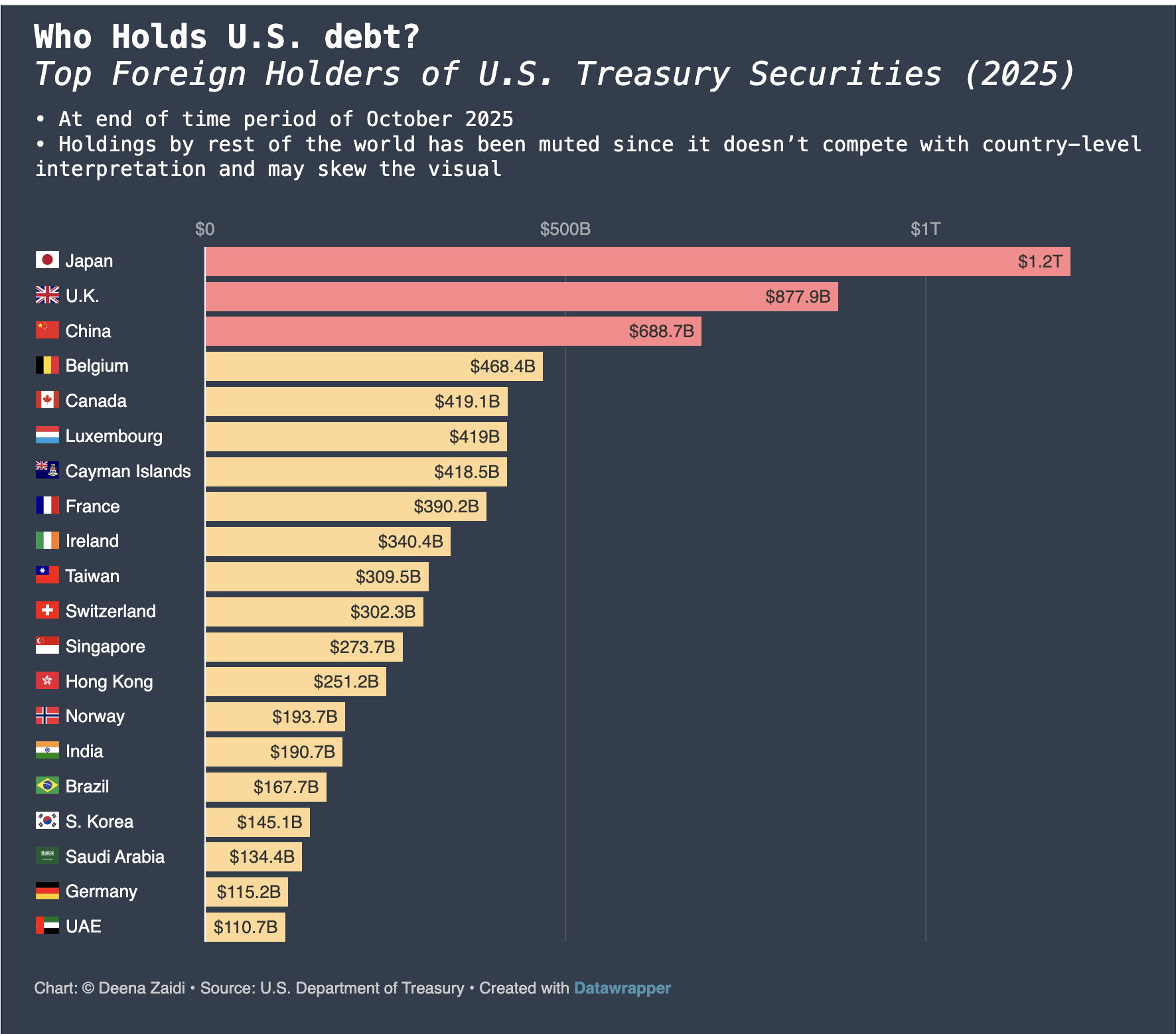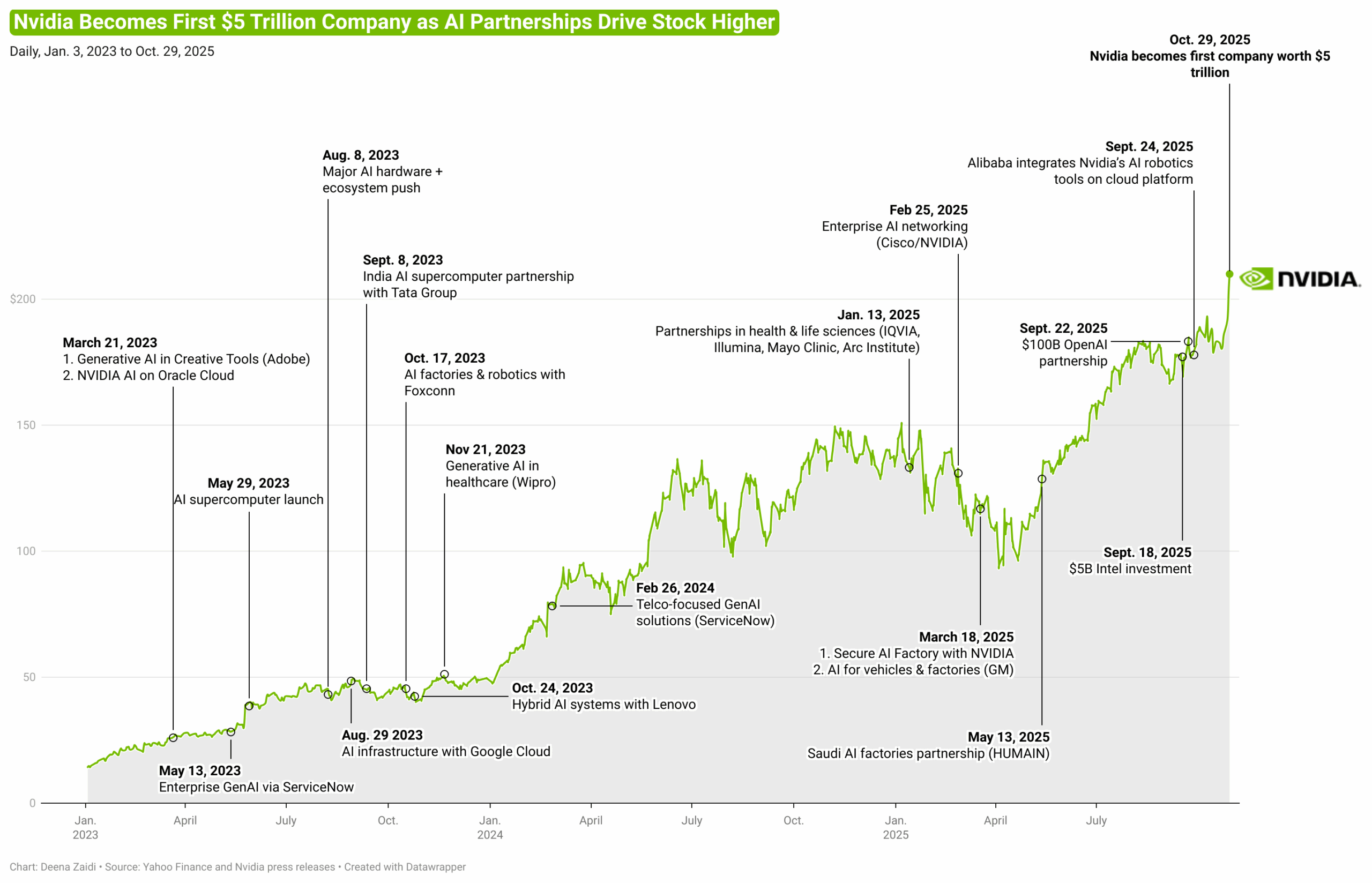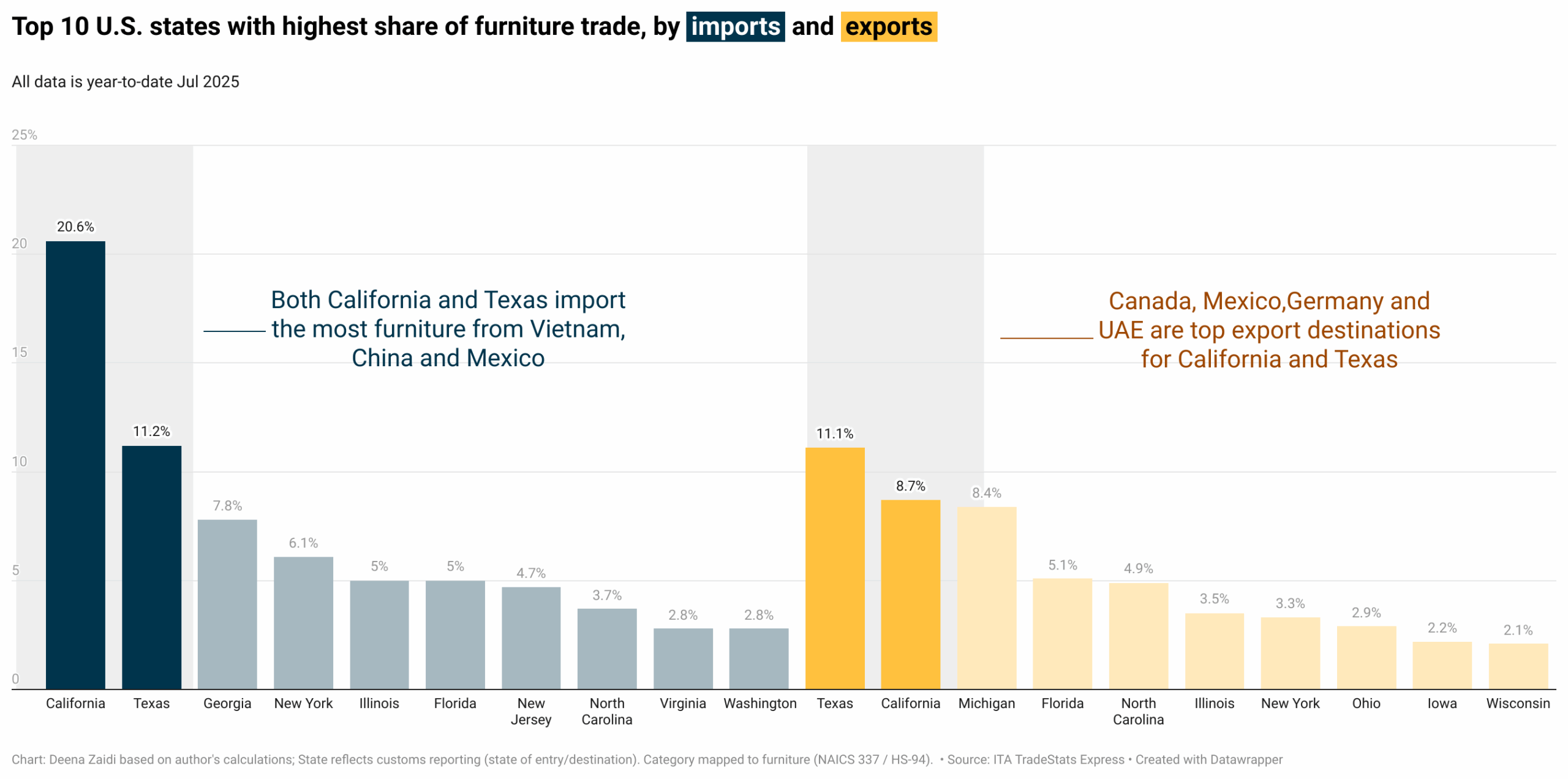In 2025, the U.S. economy didn’t simply cool or rebound but changed in ways that were visible in the data itself.
A shutdown distorted inflation, tariffs reset global trade, U.S. debt buyers quietly swapped places, and food prices surged. I pick five charts that captured how policy and politics reshaped the American economy in 2025.



